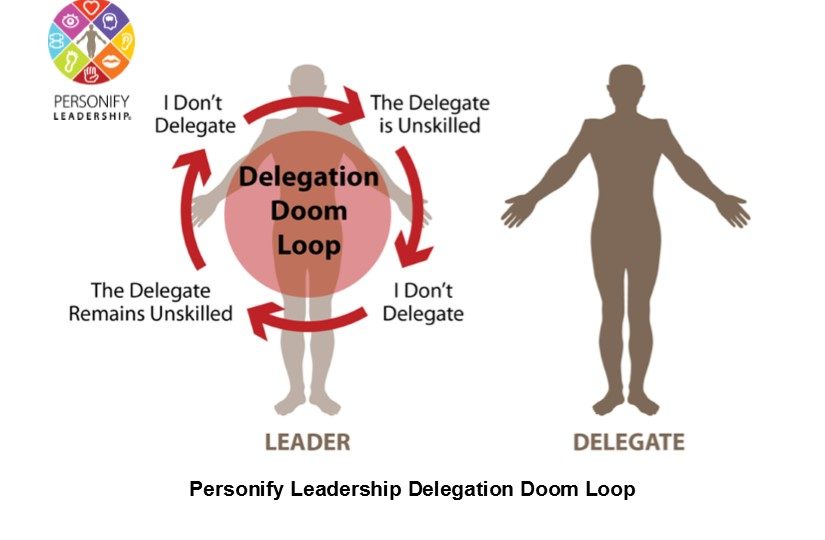Recently I received an email from a colleague that felt a little ‘loaded’. Most of the email made sense, but there was one sentence that really struck a wrong cord with me. I was tempted to fire back my initial emotional response, but as I was typing it struck me that maybe I misunderstood what the sender was trying to say. I deleted my original response and asked for clarification instead. The sender sent back a quick response further clarifying what they meant, and just as I thought, I had misunderstood what the sender was trying to say.
How often does that happen in communication? In today’s digital society, it is easy to misinterpret what someone is trying to say through an email or text. In digital communication we are missing some key ingredients of the full message: tone, body language, and emotions to name a few. In my example above, when I took the time to ask one simple question, “Can you please clarify what you meant when you said this __________?”, it saved a lot of time and energy by not focusing on the wrong things. By taking a few extra moments to truly ‘listen’ to the sender, I was able to better understand what they were trying to say.
Truly listening means taking in the full message to ensure maximum understanding. How do we do
that well? What does that require of the Receiver? It requires us to pay attention to the Sender’s:
* Words
* Body Language
* Tone of Voice
* Emotion
* IntentionWhat does all this tell me? If I’m truly listening, it tells me what their intended message is (their true meaning), or as close to it as possible. It’s our responsibility as the Receiver to really get at that intention. As Receivers, if our intention is to look out for the best interest of others, we can demonstrate this by truly listening to understand the Heart (or intention) of the sender. What do they really mean? What is behind the words they are saying – or not saying?
Clarifying questions helps us as leaders to truly listen to others. The goal of asking a clarifying question is to get additional information so that we fully understand the sender’s intended message – what they meant to say, which is not always just what they actually said. Also, these types of clarifying questions should be “heart-based” questions. Meaning, that the intention of the question is not to judge, or to add further content into the conversation. Heart-based questions should only be asked to further understand the information provided by the sender.
So what is the intent of Clarifying?
* Helps you to obtain more information
* Allows you to fill in the gaps when the person gives an incomplete message
* Solicits more detail from the sender so the receiver can get a more clear pictureLet’s look at an example of a question that someone might ask to clarify their understanding.
Examples:
* Could you please elaborate on that?
* Tell me more about…
* What did you mean when you said…?
* Are there specific…?The next time you receive an email that strikes a wrong cord with you, ask your sender to clarify what they meant using one of the examples above. You may be surprised to learn you had misinterpreted the intention behind their message.
Michelle Cummings, Co-Founder, CEO, and Chief Creative Officer
Feedback is Personal
- Dec 15, 2022
- By Personify Leadership
- In Newsletters
- 0 Comments
This month we are focusing on the Voice and Ears of a leader, or in other words, how we talk and listen to each other. There is a mounting body of evidence from researchers and practitioners that tell us positive words and interactions with others are at the heart of engagement and strong performance. And yet, sometimes we have to give feedback that is not always a positive experience. It’s simply part of being a leader. So a question we’ll explore in this article is “how do we say the hard stuff while also engaging others?”
First, we have to understand the power of our words. Whether we are aware of it or not, our words either encourage or discourage others. The word encourage means to inspire courage in others. The word discourage means to cause someone to lose courage. Take a moment and imagine someone who you respect and look up to, someone who is important to you. Imagine sitting in front of this person and they say these words:
“You are incompetent.”
“I don’t trust you.”
“I’ve lost respect for you.”
What emotions do you feel now? How do you feel about yourself? What are you motivated to do as a result of these emotions? For most of us, when we hear this kind of feedback from someone important to us, we feel angry, sad, misunderstood, and betrayed. Our natural response is to fight back, flee from the situation or freeze in place. But the last thing we want is to believe it’s true or do something about it. I remember the last time I got feedback from a friend that wasn’t pleasant to hear. I felt deeply betrayed and angry. The more I thought about it the angrier I got. I wanted to justify my behaviors, I wanted a new friend, I wanted to rewind and pretend I never heard the feedback. The last thing I was ready to do at the time was actually accept the feedback and do something about it. Now, imagine someone important to you says these words:
“I believe in you.”
“You’ve got this.”
“You are amazing.”
What emotions do you feel now? How do you feel about yourself? What are you motivated to do as a result of these emotions? Contrary to my friend who gave me harsh feedback, I had a boss who was very good at giving positive feedback. He told me how important I was, he shared how confident he was in my abilities and he communicated his trust for my decision-making ability. This is a boss that I would have followed off a cliff.
Here is the thing about feedback. It is personal. Even when we don’t intend for our words to be personal, they are. Feedback is our way of describing how the other person shows up in our world. Even when we use factual data in our feedback we strike the emotional chords of the other person. Our words have emotional weight.
When we give feedback, no matter what our message is, our goal should be to encourage – inspire courage – in others. Therefore, the skill necessary to inspire courage is: Say what needs to be said in a way that others will hear it, with respect and concern for the other person while staying true to the virtue of the message.
Some specific things we can do to increase our skill in giving feedback include minimize the threat we represent, show empathy, use exploratory languages rather than absolutes and demonstrate compassionate persistence. What are some other ways of sharing tough feedback that have worked well for you? Send us your ideas and they might end up in our next newsletter!
~Personify Leadership
The Courage to Delegate
- Nov 05, 2022
- By personifyadmin
- In Media, News, Newsletters
- 0 Comments
“If you are a leader who hasn’t assembled a team you can trust then you’re not a leader.”
Colin Powell on the Importance of Delegation
Mateo is a leader ready to move to the next level in his career. He had been very successful where he was for quite a long time. He knew how he was viewed in his division but his organization is global. He wanted to know how he was viewed by others who he had interacted with throughout the years outside of his immediate division. He asked me to assist him in learning more. Mateo gave me a list of key leaders that he would want to potentially work for in other parts of the company and he wanted to know how they viewed his leadership potential. (more…)
The Courage to Address Participant Behaviors
- Oct 25, 2022
- By Personify Leadership
- In Newsletters
- 0 Comments
Today we’re going to talk about Facilitator Courage. Specifically we’re going to talk about the courage it sometimes takes to address disruptive participant behaviors.
If you’ve been a trainer for any period of time, chances are you’ve encountered some disruptive participant behaviors a time or two. These behaviors can sometimes throw you off your game and even derail your entire training. It can take courage to address these behaviors, and having some strategies in your back pocket can really help you – and the other participants – stay on task, without sweeping the issue under the rug. Watch this short video below where co-founder Michelle Cummings gives a few tips on how to address the ‘Negative Nancies’ that may be in your trainings.
Watch this video as Michelle Cummings addresses strategies for addressing Participant Behaviors in class.
Stress & Emotional Resiliency
- Sep 27, 2022
- By personifyadmin
- In Newsletters
- 0 Comments
This month we are focusing on The Mind of a Leader and what it takes to be a leader who is Emotionally Resilient. A common myth about stress is that zero stress makes us happy and healthy, but the American Psychology Association (http://www.apa.org/helpcenter/stress-…) says otherwise. “Stress can be the kiss of death or the spice of life,” comparing it to tension on a violin string: too little tension on the string produces sounds that are dull or raspy, but too much tension can potentially snap it.
Michelle Cummings, Co-Founder and CEO of Personify Leadership (http://www.personifyleadership.com), talks about how to manage the right amount of stress. Too little can create boredom among your employees, while too much can overwhelm them. Finding the sweet spot will keep tasks interesting and challenging enough to be motivating.
I’m sure many of you tune in for the Summer Olympics when they air, and the Paralympics generally start a week later. For many Olympic athletes, the Olympic Games represent the culmination of their hard work and athletic achievement. I can’t imagine how much time, hard work and sacrifice has gone into preparing for this one small moment of time. With this level of international exposure and pressure, I’m sure emotions run high as athletes prepare to be in the best condition physically, technically, mentally and emotionally. Every athlete from every country has put in relentless hours trying to become the best that they can be at something they love and bring home a medal that honors the individual, the team and their country. The years of preparation come down to a few minutes or even seconds of competition. How can an athlete not be overwhelmed by emotions? How can they stay emotionally resilient in the moment? (more…)
Afraid of Giving Feedback? Tips for Speaking Constructively at Work
- Sep 11, 2022
- By personifyadmin
- In Newsletters
- 0 Comments
Afraid of Giving Feedback? Tips for Speaking Constructively at Work
As leaders in the workplace, how often to we buffer our employees from feedback? How often do we find ourselves holding back valid and useful information and giving messages that are diluted at best?
For most leaders, the response is: too often to count.
That’s because honest feedback is difficult — even painful — to give and to receive. It’s so much easier to shirk these uncomfortable situations by just avoiding them. Yet this takes a toll on productivity.
This dynamic shows up in organizations of all shapes and sizes, and we’ve boiled it down to a three-prong paradigm — one we like to call the“Feedback Trifecta”.
The Drain Model
- Jul 15, 2022
- By personifyadmin
- In Newsletters
- 0 Comments
Have you looked at your goals for the year lately? Remember back in January when you turned the calendar to a new year, full of opportunities and promise? Did you make a list of the things you wanted to accomplish this year? How many goals of the goals that you set for yourself have you achieved? I took a look at mine recently and there were a few that I have done very well at. There were also a few that still need a lot of work before the end of the year gets here. (more…)
I’m sure you’ve been told by someone in your life the importance of setting daily, weekly, monthly and even lifetime goals. That being said, have you ever set a clear goal only to have it not pan out the way you thought it would?
×
At the heart of every high-performing organization is a strong leader – someone who drives the vision, creates the company culture and knows how to call the shots in a time of crisis. Wouldn’t it be great if every company had multiple leaders like that?
Stay up to date.
Join Our Newsletter for the latest Personify Leadership News.
© 2012-2025 Personify Leadership. All Rights Reserved.








Recent Comments